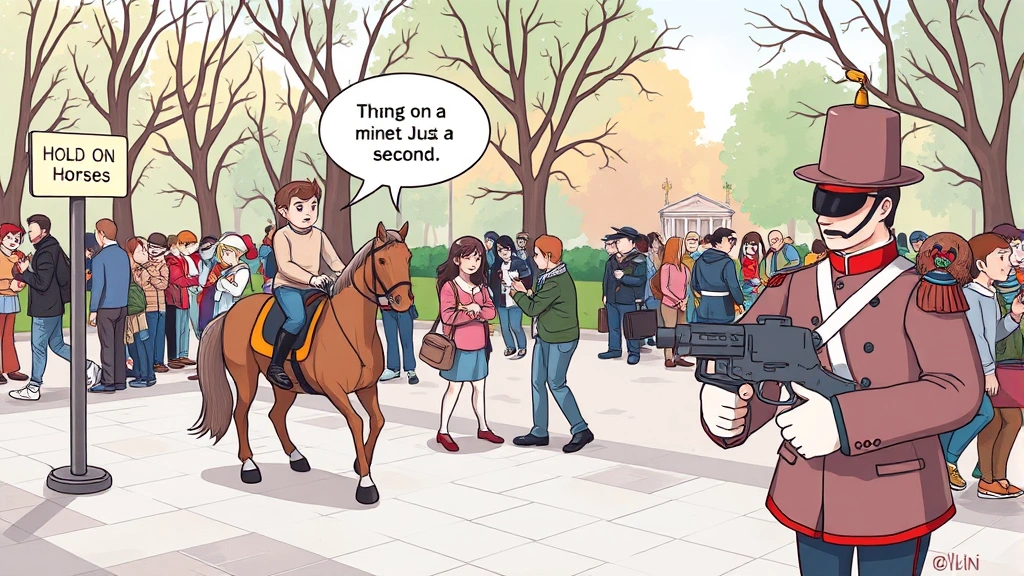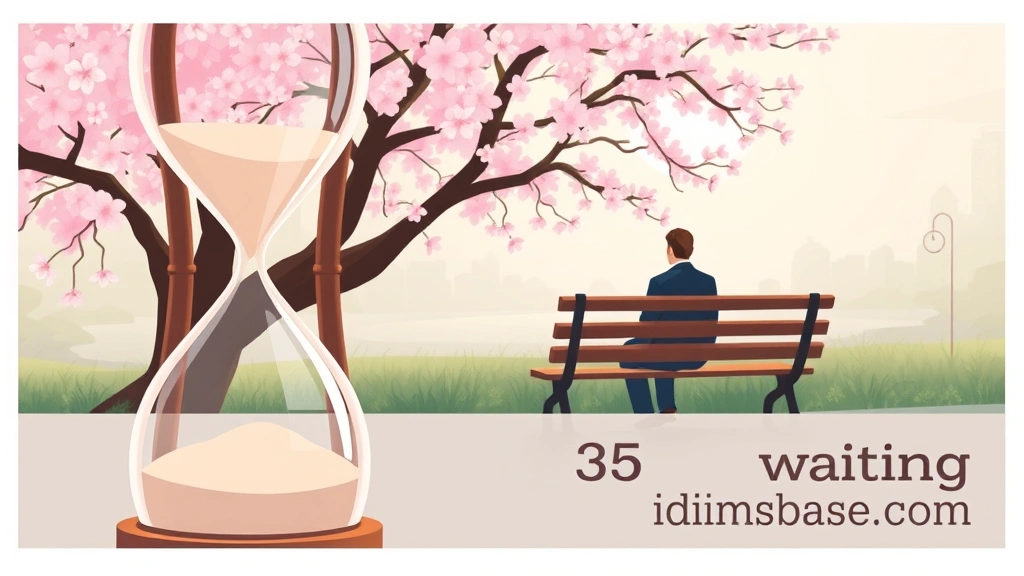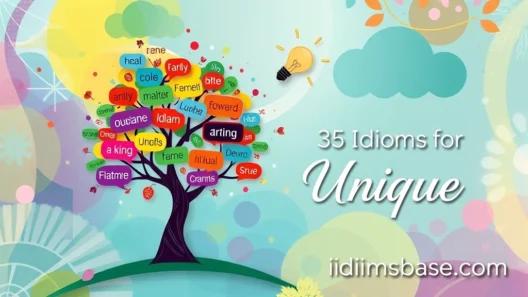You know that feeling, right? That restless energy, the tapping foot, the endless checking of the clock. We've all been there – waiting. Whether it's for a bus, a job offer, or that exciting package to arrive, waiting is an inevitable part of life. And guess what? English is absolutely packed with colorful and expressive ways to describe this universal experience!
So, buckle up! We're about to dive into 35 fantastic idioms that capture every nuance of waiting, from the short and sweet to the seemingly endless. By the end of this, you'll be able to articulate your waiting woes (or wins!) with flair and precision. Let's get started!
The Art of Patience: Idioms for Waiting
Waiting isn't always easy, but these idioms help us describe the process.
Short and Sweet Waits
Sometimes, waiting isn't too bad. These idioms describe shorter, more manageable waits.
- Hold your horses: This classic means "wait a moment" or "slow down." It’s perfect when someone is rushing ahead.
- Hang on a minute/second: A very common, informal way to ask someone to wait briefly.
- Just a moment/second: Similar to "hang on," implying a very short wait.
- Hold fire: This one means to delay action or decision, often in a military context but used generally too.
- Give it a minute: Asking someone to pause or think before acting.
- Take a rain check: To postpone something for another time. Maybe you can’t make it now, but you’ll do it later!
- Sit tight: To wait patiently without moving or changing your plans.
- Cool your jets: A slightly more assertive way to tell someone to calm down and wait.
- Hold your breath: Often used hyperbolically, meaning to wait with great anticipation or anxiety. "Don't hold your breath for that promotion!" implies it's unlikely.
The Long Haul: Idioms for Extended Waits
Ah, the longer waits. These idioms really capture the feeling of time stretching out.

- Wait for the dust to settle: To wait until a situation becomes clear or calm after a disturbance.
- Play the waiting game: To delay taking action in order to gain an advantage or see how things develop. It's strategic waiting!
- Bide your time: To wait for a good opportunity, often patiently and secretly.
- Mark time: To wait without making progress, often feeling stuck.
- Twiddle your thumbs: To do nothing while waiting, often implying boredom or idleness. We've all been there, right?
- In the pipeline: Something that is being planned or developed and will happen in the future.
- On the back burner: Something that is postponed or given lower priority for the time being. It's not forgotten, just on hold.
- Cool your heels: To be kept waiting for a long time, often in a frustrating way.
- Time will tell: The truth or outcome will only be revealed in the future. Patience is key here.
- Wait in the wings: To be ready to take action when the time is right, often waiting for an opportunity.
- Kick your heels: Similar to "twiddle your thumbs," meaning to waste time waiting.
Anticipation and Impatience: Idioms Reflecting Emotions
Waiting often comes with a whole range of emotions. These idioms capture those feelings.
- Champing at the bit: To be eager and impatient to start doing something. Like a horse ready to run!
- On tenterhooks: To be in a state of anxious suspense or eager anticipation.
- Bite your nails: To be very nervous or anxious while waiting for something to happen.
- Fidget: To make small, restless movements, often due to nervousness or impatience.
- Itching to do something: To be very eager to do something.
- Counting the days/hours/minutes: To be eagerly awaiting an event, often feeling impatient.
- A watched pot never boils: This proverb means that time seems to pass more slowly when you are impatiently waiting for something to happen. So true!
- In suspense: A state or feeling of excited or anxious uncertainty about what may happen.
- Hold your breath (in anticipation): To wait with great eagerness or anxiety for something to happen.
- On pins and needles: To be in a state of extreme nervousness or anticipation.
The End of the Wait: Idioms About Resolution
Finally, the wait is over! These idioms describe the resolution of a waiting period.
- The light at the end of the tunnel: A sign that a difficult period is coming to an end. Hope!
- See the writing on the wall: To realize that something is likely to happen, often something bad, even if it hasn't happened yet.
- Turn over a new leaf: To make a fresh start or change one's behavior for the better after a period of waiting or stagnation.
- The die is cast: A decision has been made and cannot be changed; the outcome is now inevitable. The waiting for the decision is over.
- The clock is ticking: Time is running out, and a decision or action must be taken soon. This one implies the wait must end.
Frequently Asked Questions (FAQ)

You've got questions about these wonderful idioms, and we've got answers!
Q1: Why are idioms important in English?
Idioms add color, expressiveness, and nuance to your language! They allow you to convey complex ideas or emotions in a concise and often witty way. Think of them as shortcuts that make your English sound more natural and sophisticated. They’re also a huge part of cultural understanding.
Q2: How can I remember so many idioms?
Great question! The best way is to use them. Try incorporating one new idiom into your conversations or writing each week. You can also:
- Create flashcards: Write the idiom on one side and its meaning/example on the other.
- Group them by theme: Like we did here with "waiting."
- Notice them in context: Pay attention when you read books, watch movies, or listen to native speakers.
- Tell a story: Create a short story using several of the idioms. The more creative, the better!
Q3: Are these idioms formal or informal?
Most of the idioms for waiting tend to be informal or neutral. You'd hear them often in everyday conversation. For example, "hold your horses" is very common among friends. However, some, like "in the pipeline," can be used in more business-oriented contexts. Always consider your audience!
Q4: Can I use these idioms in writing?
Absolutely! Using idioms in your writing can make it more engaging and vivid, especially in creative writing, emails to friends, or informal articles. Just be mindful of your audience and the tone of your writing. For very formal academic papers, you might want to stick to more direct language.
Q5: Do idioms have literal meanings?
Sometimes, but usually not in the context of their idiomatic use. For instance, "hold your horses" doesn't literally mean to grasp an animal. The beauty of an idiom is that its meaning is figurative, going beyond the individual words. That's what makes them so fun and sometimes tricky!
Key Takeaways
So, what have we learned about the noble art of waiting and its idiomatic expressions?
- Waiting is Universal: Everyone experiences waiting, and English offers a rich vocabulary to describe it.
- Idioms Add Flavor: They make your language more vibrant, expressive, and natural.
- Context is King: The best way to understand and use idioms is to see them in action.
- Practice Makes Perfect: Don't be afraid to try using these idioms in your daily life. The more you use them, the more comfortable you'll become!
- Emotions Matter: Many waiting idioms capture the feelings of patience, impatience, anxiety, or hope.
We hope you've enjoyed this linguistic journey through the world of waiting! Now you have 35 new ways to express that universal human experience. Which one will you try first? Share your favorite "waiting" idiom in the comments below!







